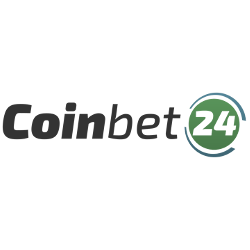Online iGaming Operators Won’t Like This: Curaçao, Known for Its Lenient Gambling Rules, Tightens Its Regulations
It might be difficult to talk about Anti-Money Laundering (AML) regulations in a way that holds all parties alert. Things like KYC (Know Your Customer), AML, CDD (Customer Due Diligence), and SoW (Statements of Work)—terms that only serve to propagate myths and misconceptions about jurisdictions purportedly having lenient AML requirements and cheap compliance burdens—are frequently disregarded by the iGaming industry. Curaçao was considered one of these virtually legendary locations for a while.
Not any longer.

With the most recent revision to Curaçao’s AML legislation, which goes into force on September 1, 2024, there has been a major upheaval. Because this Caribbean island jurisdiction is notorious for changing its gambling legislation slowly, the new rules have caused a great deal of controversy among gaming operators, who see them as unwelcoming for the best offshore betting.
But could it truly be really as awful as Curaçao’s handling of deadlines?
An Overview of AML Regulatory Changes in Curaçao
Adapting from Malta, Curaçao is constantly updating its regulatory frameworks; maybe the simplest way to characterize this process is to call it “Maltifying” the sector. Although the new AML regulations are seen as onerous, they are actually a fair revision that brings Curaçao’s operations into line with accepted norms.
Important features of the new rules consist of:
Unambiguous CDD criteria: When a player makes a transaction of at least EUR 2,200, operators are required to initiate CDD (meaning to collect data about their customers and clients to detect and reduce risks such as laundering money, funding terrorism, and other unlawful behaviors), as soon as practically possible.
Screening for sanctioned and Politically Exposed Persons (PEP): Demanded for players on the US, EU, and UN sanctions lists, at the very least.
High-danger signs: It has been noted that using cryptocurrency raises danger even if it isn’t strictly forbidden, and a comprehensive list of indicators for high-risk instances has been supplied.
The role of an AML officer: Every operator needs a specialized AML officer with the staff and resources to properly handle risks.
Guidelines and policies: A new year means that operators with Curaçao licenses should provide more internal documents, guidelines, and procedures.
Even though Curaçao’s new regulations are quite comprehensive, they basically mirror those that are in place in Malta and other EU nations, as well as rival jurisdictions that provide adaptive licenses like Kahnawake, Tobique, and Anjouan.
Curaçao’s evolving AML laws show a steady trend toward a stronger regulatory framework that’s more in line with international norms. Although at first thought to be burdensome, these modifications align not just with global norms, but also with regulations that are presently in effect in a rival legal system.








